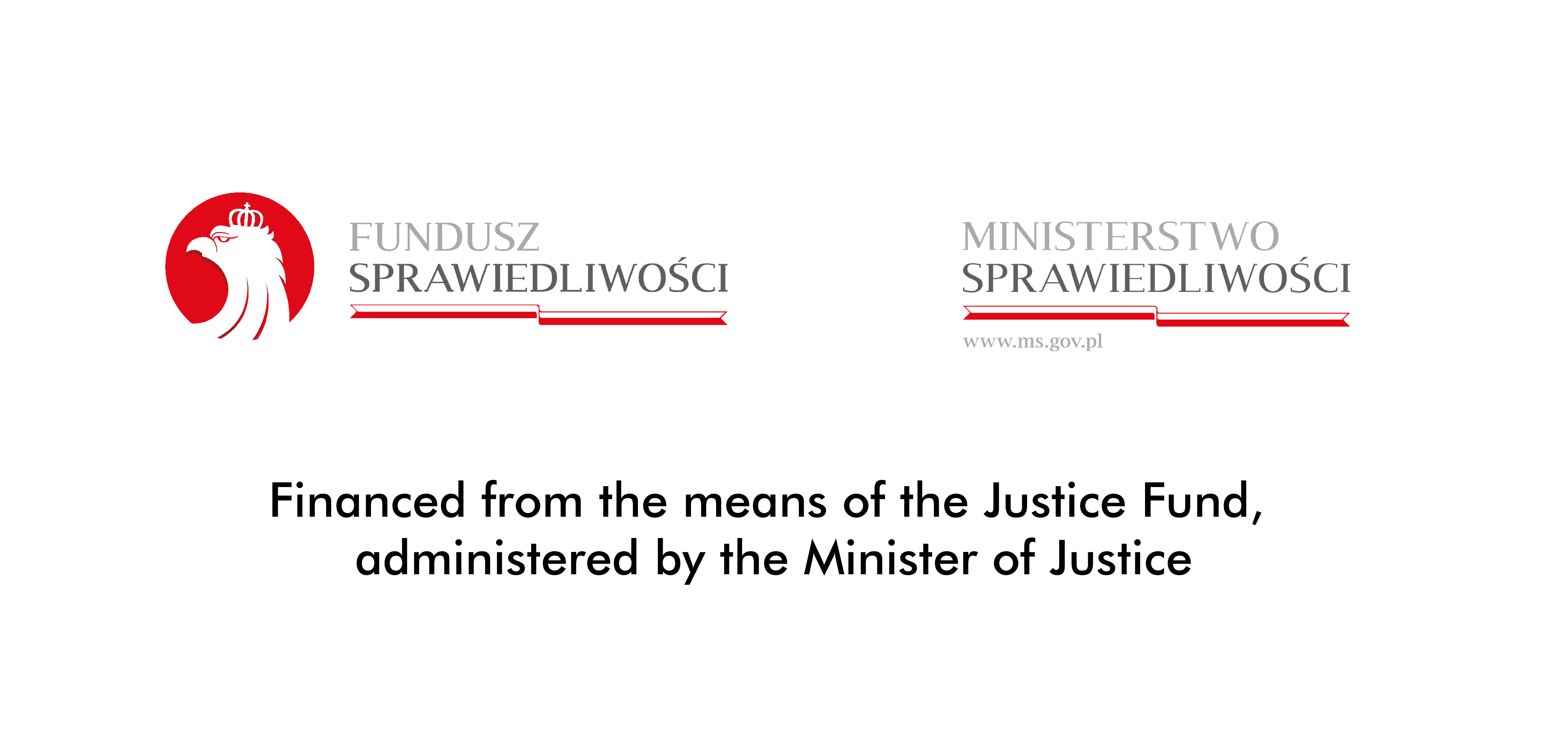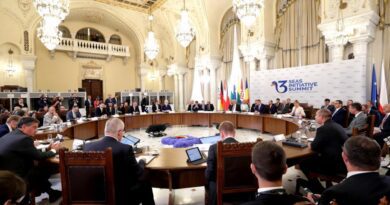“Rule of law” – EU’s stick on unruly states

“Other countries must not delude themselves – similar steps may soon be taken against them if the European oligarchy finds the elected government unfavorable to Brussels’ neo-feudal plans” – says Marcin Romanowski, Poland’s Deputy Minister of Justice.
PIOTR WŁOCZYK: What exactly is the “rule of law” that the European Union sets as a requirement for Member States?
MARCIN ROMANOWSKI: A very good question. This is where we have the fundamental problem of the ongoing dispute with the European Union, because as a consequence of the politicized actions of the CJEU and the European Commission, there is no clear answer to this question. And it should be very simple and clear, especially when it concerns a principle as fundamental as the “rule of law.” However, the expansive interpretation of the Treaties turning the European system of values upside down has led to a situation where the letter of EU law has become almost meaningless, and the concept of the “rule of law” is applied by Brussels without any order and in contradiction with EU law. Union bodies themselves blatantly violate the rule of law by violating the provision of the Treaties, the foundation of EU law. Today, the permanent model of operation of international organizations such as the Union is to attack Member States. Meanwhile, it is, after all, sovereign states that are the condicio sine qua non for the existence of international organizations. Questioning the role of Member States, which are the masters of the Treaties, is part of a broader concept of the leftist internationalism that wants to destroy natural communities, above all the family, faith or national identity. We must reverse this trend by subjecting the EU’s non-transparent bodies, which lack democratic legitimacy, to scrutiny and objective evaluation. Although the EU Treaties clearly require full equality between Member States, Western elites without a stutter preach a discriminatory view of better and worse democracies, which in their view is supposed to justify applying double standards to Poland.
On what basis does Brussels assume the right to assess what is consistent with “the rule of law” and what is not?
For many decades, the EU bureaucracy has consistently employed a strategy of encroaching on authority that was not in their scope, and it is no different in the case of the Polish judiciary. The CJEU has played a significant role in this matter. It is the CJEU that, starting in the 1960s, positioned itself as the sole arbiter in disputes over EU law, the scope of which it has systematically expanded without legal basis or the consent of the Member States. Even one of the most famous cases in EU law – Costa v. ENEL – in which the CJEU recognized the superiority of Community law over national law, was, after all, contested by the Italian Constitutional Court because the case did not fall within the CJEU’s jurisdiction. This despotic practice has shaped the thinking of generations of EU officials. Until the conflict with Poland, no one dared to say it out loud. It was us who disrupted the policy of ambiguity when EU institutions began to reconstruct European values, especially the rule of law. Since 2018, the CJEU has usurped the right to evaluate national judiciaries in abstracto, in a purely subjective way that does not require pointing to a specific example of violation of said rule of law, but only on the basis of the general impression of the Brussels oligarchs. This is a very dangerous, but above all unlawful overinterpretation of the powers delegated by the Member States.
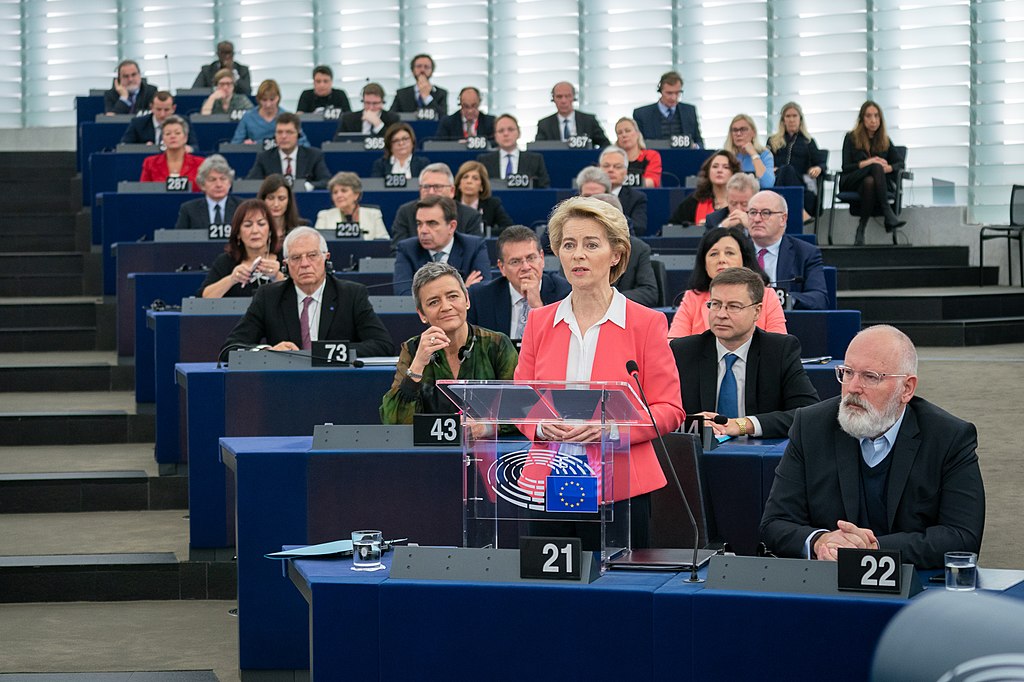
How flexible is the definition of “rule of law”? What can we expect in this context in the future?
When asked by Poland and Hungary, the Court itself had a huge problem defining the concept serving as the basis for the far-reaching and historic financial penalties imposed on our homeland. In the decision on the creation of the conditionality mechanism, we can read that EU judges are unable to precisely and clearly define what the “rule of law” is, and this is a deliberate procedure, since the extensive continental legal culture makes it difficult to clearly specify this concept, while a flexible definition guarantees easier and broader application. Other passages in the identical judgment read that the budget is the best tool to guarantee effective implementation of Brussels’ will. In fact, Germany, using the EC, is free to expand the concept depending on the current needs of the EU’s de-nationalization policy. It all started with the Polish Constitutional Tribunal, then the Supreme Court, and the National Council of the Judiciary were put in the crosshairs. Increasingly, the same documents mention the implementation of the demands of the LGBT lobby or criticize anti-abortion laws. Besides, we can already see how the European Parliament, together with the Civic Platforms’ Euro-collaborators, is producing more resolutions for this reason, which call for a full obstruction of our country. The rule of law has become a convenient stick to beat the disobedient. Citizens are suffering. Other countries must not delude themselves – similar steps may soon be taken against them if the European oligarchy finds the elected government unfavorable to Brussels’ neo-feudal plans.
How did we get to the point where Brussels can use the “rule of law” as a weapon today? Could this have been avoided?
The key element in the current situation was the agreement to link the disbursement of funds from the Reconstruction Fund to the creation of the “money for the rule of law” mechanism, which armed the EU institutions while tightening the noose of centralization around the necks of sovereign states. As part of the Solidary Poland fraction, we warned our coalition partners from the very beginning about this Trojan horse and concessions, which act on the EC like a red rag to a bull. However, in the same way when the judicial reform authored by Minister Zbigniew Ziobro was vetoed in 2017 because of the contestation coming from Brussels, the concept of “compromise” prevailed in the case of the conditionality mechanism. In both cases, the result was the same – more and more non-Treaty demands and deepening blackmail. They say “a Pole is wise after the fact,” and Solidary Poland learned its lesson in 2017, suggesting that our partners change their approach to the EU establishment and reject the decision to link the payment of EU funds to the rule of law. The law is on our side, it is Brussels that uses ruthless games. We cannot back down when the sovereignty and independence of our homeland are at stake.
Is the “rule of law” an end in itself for the EU institutions or merely a tool to achieve some other goal?
The sudden interest in the state of Polish democracy did not come out of nowhere. The European Commission rarely acts disinterestedly. It is no secret that the Brussels elite has been striving for years to transform the Union into a centralized federal state. Over a year ago, this was announced to the world by Chancellor Olaf Scholz, making federalization an immediate goal of the new German government. Meanwhile, since the United Right took over the government, Poland has firmly placed its interests and sovereignty at the forefront. Assertiveness irritates the EU bureaucracy, accustomed to docile execution of orders by the likes of Donald Tusk. So an open war has been launched against the Polish government, undermining the legitimacy of its actions. We know very well that the problem will disappear only if the Civic Platform wins the elections. The European Commission is not interested in compromises – none of the concessions made by Poland since 2017 have extinguished the dispute. On the contrary, the EU perceives them as an expression of weakness after which it escalates its own demands.
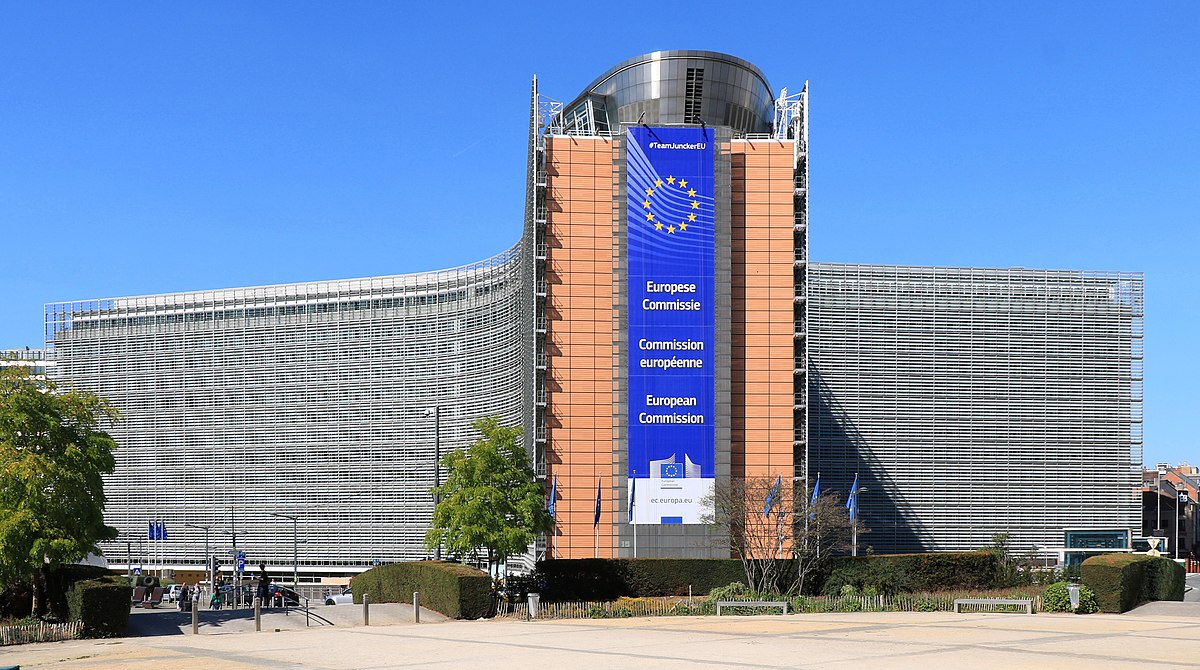
Is there a way for Brussels to stop using the “rule of law” as it is now?
The European Union, as it stands today, seeks more and more control over Member States. The rule of law, as sketched out by the CJEU, has become the perfect pretext for more interference, especially since the adoption of measures such as the conditionality mechanism in 2020. To end this madness, we need to rebuild the Community system. Only a return to the idea of a Europe of Homelands, the former ideal of the Founding Fathers, will permanently secure the sovereignty of Member States. Economic cooperation on equal terms, less politics and getting rid of the toxic gender ideology – these are the solutions needed for today. Otherwise, openly undermining independence in the name of the rule of law will become a matter of time.
How realistic is it to expect that something can change in this matter, when supporters of such strict policies against right-wing governments have a definite advantage in the EU institutions today?
I don’t think that this is a situation that cannot be reversed. Indeed, the demo-liberals belong to the European mainstream today, but nothing lasts forever. In recent years we have seen the first symptoms of change in Europe. Fatigue from the consequences of the disastrous policies of the disconnected European left is increasingly affecting European societies. The Right is winning not only in Poland or Hungary, but is also succeeding in Western countries predominantly associated with the Left, such as Italy. In Spain, too, the voice of the right-wing group VOX is increasingly breaking through. The delirious forcing of Berlin’s interests at the expense of the rest is discouraging more and more people. This is demonstrated by the recent approval of state aid, involving almost exclusively two countries – France and, of course, Germany. Moreover, after the start of the war in Ukraine, more and more Member States are recognizing the scale of the threat from the east, but also, and more importantly, its source. For years, Putin’s army has been feeding off the profits of the Kremlin-Berlin consortium, although Poland and other countries in our region have warned the EU against doing business with the Russian dictator. I think it is a matter of time to build a broader coalition for the renewal of the European Union in the spirit of the Europe of Homelands. If it is to survive these difficult times, it will be possible only if we undertake real reforms.
What is the greatest threat to the unity of the European Union today?
The German leadership and the insanity of federalization are definitely one. The arrogance of EU bureaucracy and its constant claims to new powers are destroying the European Union more than any Eurosceptic party. The tightening of the screw by the European Commission may be counterproductive. There would have been no Brexit had it not been for a clear push toward the federalization of Europe, hiding Germany’s imperial inclinations. The British did not want to be part of this. Regardless, Brussels did not learn anything.
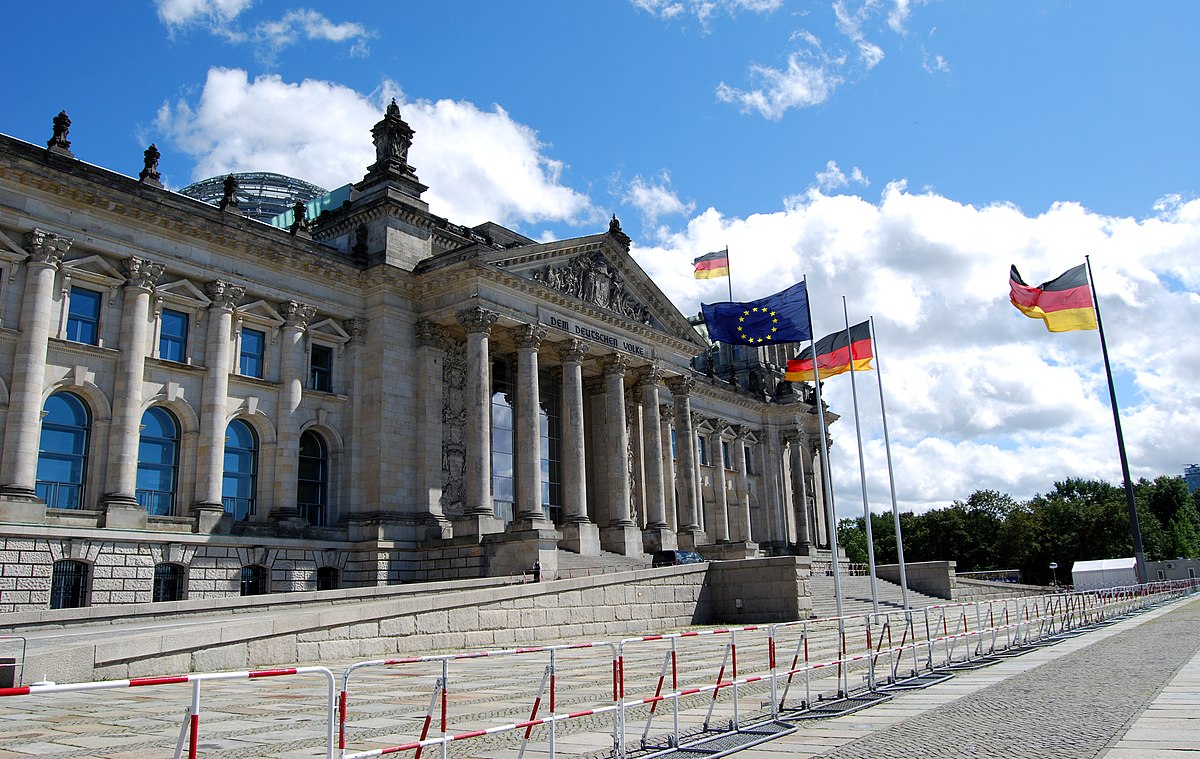
Is it even possible to stop plans to turn the EU into a European superstate with a strong center of federal power in Brussels? There is no shortage of politicians in Europe who argue that only an EU in this format can effectively look after its interests in competition with the world’s major powers.
This is an increasingly common narrative from big players such as Germany and France. It is these countries, with Benelux in tow, that will be the biggest beneficiaries of Europe’s federalization. For the remaining EU members, this would mean nothing less than a loss of sovereignty. Taking decision-making back into the hands of the federal government would reduce them to the role of autonomous provinces, states without influence over reality. It would also be an economic marginalization of Europe, transformed into a great backwater of the German and French economies, dependent on Berlin’s close business partners such as Putin’s Russia for raw materials. As I mentioned earlier, more and more nations are beginning to realize this. Prime Minister Meloni is saying it directly, politicians in Spain are saying it, and Central Europe’s voice is getting stronger thanks to the fact that we were right about Russia. Besides, federalization is not a new concept. Italian communist Altiero Spinelli, who wanted to build a socialist utopia on the ruins of nation-states, spoke of it as early as 1943. The same Spinelli later became an influential politician in the European Parliament and the European Commission, and today is considered the Founding Father of the EU. Federalization was vividly discussed as early as 20 years ago during the work on the would-be European Union Constitution. Back then, the nations of Western Europe spoke out strongly against turning the EU into a superstate.
Does the EU pass the test in the face of the war in Ukraine? Can Poland feel safe in this context?
Beautiful words and declarations are no substitute for concrete actions. As long as sanctions are a sham, and leaders of the likes of Scholz and Macron promise Putin a return to the ranks of the international community, there is nothing to count on for the EU’s credibility. Germany, which is painfully affected by its raw material dependence on Russia, is hoping for an end to the war as soon as possible and a return to business as usual. Cheap Russian gas is a drip feed for a broken German economy, for which profit is all that matters. You can’t put your trust in an unreliable ally.
We are in a much better position than Ukraine. We belong to both the European Union and NATO, and we have numerous security guarantees. But having learned from history, we must, first and foremost, bet on ourselves. That is why the United Right government has been working for years to increase and strengthen the Polish Army, our pride and guarantor of independence. Recent contracts with the United States, Korea, or Turkey have provided our country with modern world-class equipment. Most importantly, our society is empowered by the spirit of patriotism, the memory of ancestors, insurgents, and defenders of borders. No alliance or guarantee can replace this.
Marcin Romanowski holds a PhD in law and is a university lecturer. He has served as Deputy Minister of Justice since 2019.
